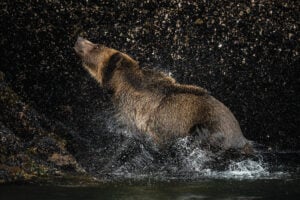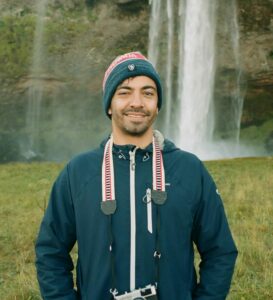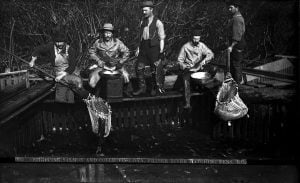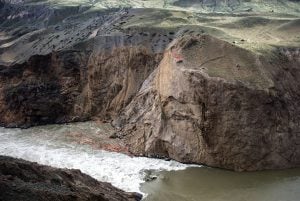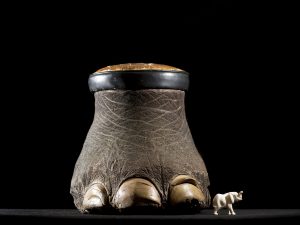They call her the “Jane Goodall of Canada.” Forty years ago, Alexandra Morton arrived in British Columbia’s Broughton Archipelago with one aim: a lifetime observation of northern resident orca. Then, in 1989, industrial fish-farming moved into the area. Wild salmon populations fell and the whales left. Her focus shifted to pacific salmon, whose survival her beloved orca relied on. Today, she continues to use all her powers as a scientist and communicator, and more recently as a politician and author, to bring the plight of wild pacfic salmon to the public eye.
On studying whales and finding a home
In 1984, I found the perfect place to set up a lifetime study of orca, modelling my work after Dr. Jane Goodall. I followed a group of whales into the Broughton Archipelago, and found a little community called Echo Bay, which had about 200 people at the time. It was just the perfect place that had whales, protected waters, and enough of a community that our son wouldn’t be growing up alone. The first few years were just phenomenal. You learn something every time you go out with these creatures.
On the impact of salmon farms
In 1988, the first salmon farms started to move in. I thought they were a great idea because I was always afraid the school was going to close. We saw the industry bringing more families. It wasn’t until a few years later, however, that the fishermen started to come to me and ask me to write letters. Everybody had told us it was going to be good for us. In the end, it just wiped us out. The orca left, the salmon declined, the water quality changed. And I refuse to let go of this. If we’re going to turn it around, it’s got to happen right now, because the wild salmon populations have gotten so low.
On the importance of wild salmon
Salmon are like a power cord. They pick up the massive amount of energy from the sunlight hitting the open ocean. When sunlight hits the ocean, zooplankton bloom, fish eat zooplankton and then salmon eat the small fish. They go out to sea small and they grow on this energy and store it in their flesh. Then, when they come back, they are right on schedule. All of the eagles that have just produced chicks are waiting for the pink salmon, the orca are waiting for the Chinook salmon and the bears are waiting for whatever they can get in these rivers. [The salmon] feed 100 species. I think of it like this river of life that comes in. They are one of the most remarkable species in their ability to be abundant and to feed everybody and still thrive.
On writing her first book, Not on My Watch
For close to 30 years I’d watched this ecosystem die. For a biologist, it really was soul destroying. Then, one First Nation man and one First Nation woman decided they were going to stand on a salmon farm until it went away. This ignited something that never stopped. It was so remarkable to see the fortress of this industry breached by these people who were peaceful, honourable, careful with their messaging and did not pollute the farm. Eventually, I occupied the farm myself. In the end, the Nations won control and are taking the farms out. They have reasserted their authority over these areas, and it’s going to be good for everybody. Once I started writing, the story just poured out and it felt so good. It’s a dark tale. But I want people to know that you can fix these things. I just thought, I’m going to tell a fair story from my point of view. Parts of the story are not mine to tell and I’m not going to tell those. But I am going to go after the perpetrators of this.
